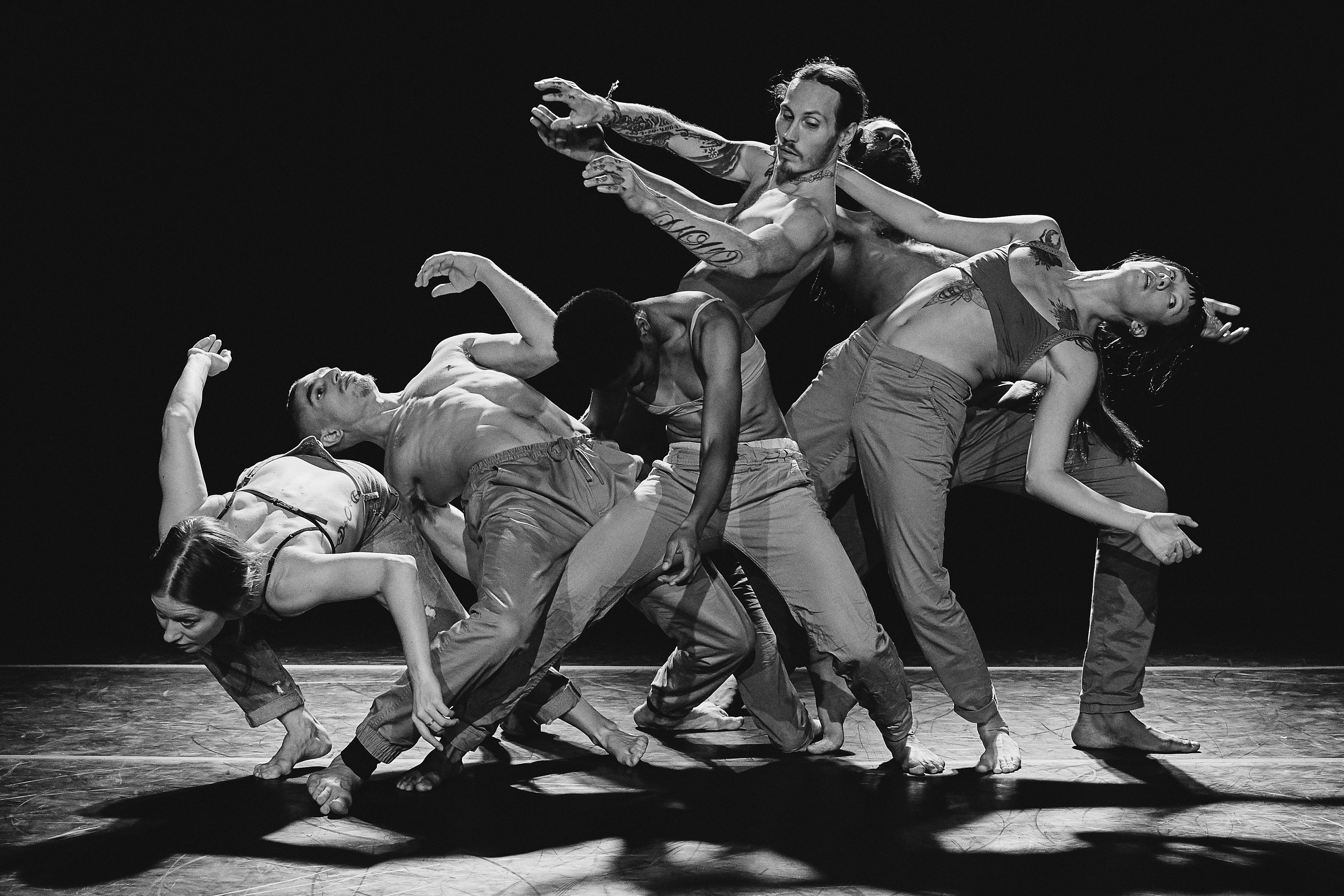
When I was sitting in the audience of “Ghost” last week, and the dancers on stage had just settled into a deep-rooted rhythm, a voice in my head said, “This is SO Montreal.” Everything I love about Montreal lives and breathes in this contemporary dance show. “Ghost” wears and discards genres, quite literally, as the piece grows and blooms before our eyes.
There are many wonderful dance shows that you can see in Vancouver, at any given time of the week. Many of them, performed by top-notch athletic and talented dancers. So what is it about “Ghost” that made me feel like I was watching something that I don’t usually get to watch?
It’s the Montreal thing.
It’s the way in which Montreal has always been in a passionate love affair with music. Music feeds the city’s unparalleled nightlife, venues, underground parties and art communities. Montreal’s love for music is evident in Tentacle Tribe’s energy. We get to see hip-hop, techno and electronic music on stage, which usually aren’t deemed “serious” or “elevated” enough for formal performance. But in “Ghost” these musical genres are given the spotlight they rightfully deserve. You fall into a trance watching the dancers react to this music that they so clearly love. It’s the kind of trance that beguiles you when you go out in Montreal to venues with world-class sound systems and deejays.
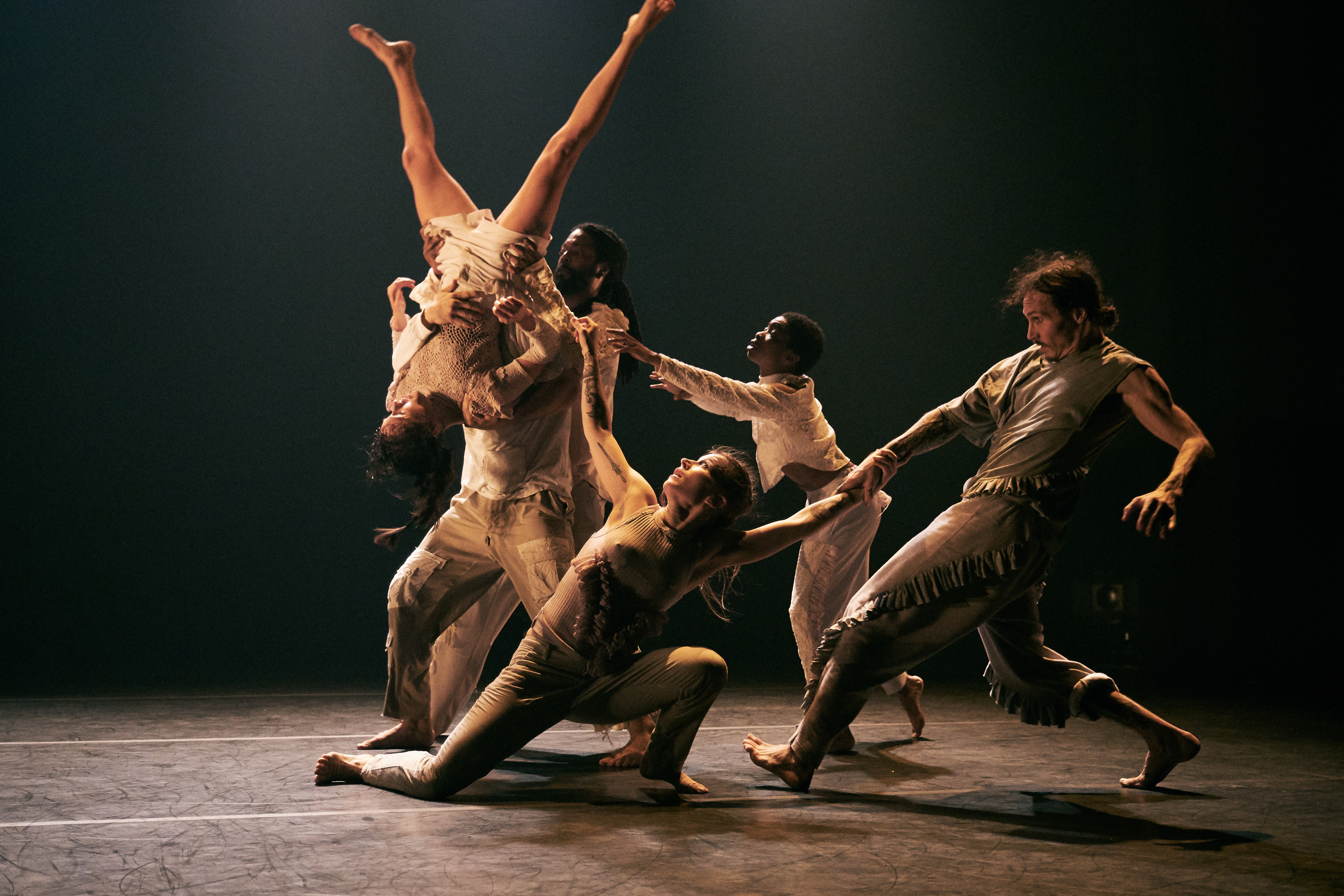
Tentacle Tribe brought us a slice of Montreal with “Ghost.” The show represents Montreal’s unpretentious attitude towards art. Its love for breaking the mould and trying new things. The show brought us the essence of a place where art has still not been completely sullied by capitalism and exists on its own accord. A place where art is not polished to perfection but is still rough around the edges. Montreal’s music, dance and art scenes are raw, organic, fresh and new. They are brave enough to be weird, and in doing so, absolutely free.
And to be perfectly quite honest, it was just goddamn cool to see hip-hop and techno bass reverberate through the popping and waving bodies of brilliant dancers on the Cultch stage, as they tackled abstract and existential concepts.
Tentacle Tribe was created by Ottawa B-girl, Cirque du Soleil dancer, and choreographer, Emmanuelle Lê Phan, and Swedish martial artist, Cirque du Soleil dancer, and choreographer, Elon Höglund in 2012. They formed a dance collective in Montreal that brings together street dancers who mash and meld hip-hop, martial arts, contemporary and modern dance, capoeira, and break-dancing to create pieces that are entirely original and that push the boundaries of physical movement.
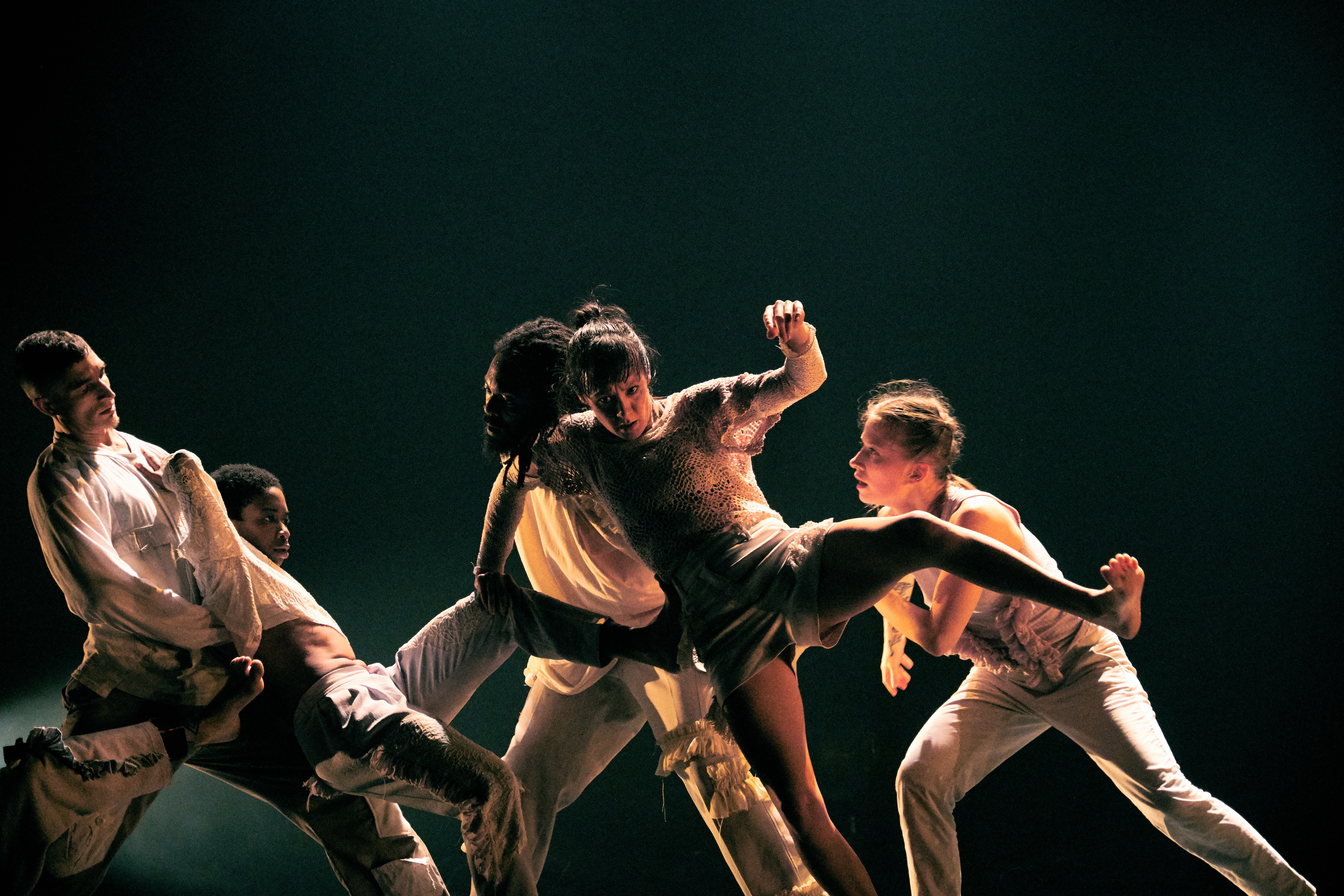
Lê Phan and Höglund are not only extremely athletic and seasoned dancers, they are also big thinkers interested in choreography that experiments with new formations and shapes made with multiple dancing bodies. Joined by the equally amazing Mecdy Jean-Pierre, Erika Nguyen, Victoria Mackenzie and Rahime Gay-Labbé, Lê Phan and Höglund create a world that shows off the brilliance and complexity of street dance, a genre that still isn’t considered “true” dance because of its racialised and economic roots.
As a fan of the emotiveness and grace of contemporary and modern dance, of which we see a lot of in Vancouver, I have always craved seeing aspects of hip hop and electronic music in it. You can’t really use the word “contemporary” by overlooking a culture that is dominating the mainstream music and dance scenes right now. Tentacle Tribe takes a much-needed step to bring hip-hop and electronica to the dance stage.
“Ghost” is a collection of flowing dance pieces tied together by a common thread – the concept of formless states of being and the traumas and blockages we experience when confronted with them. The dancers tell the story of their struggles with different kinds of “ghosts” by using their limbs to explore the air and stage around them. The dance is grounded. We feel the dancers’ anguish as they confront their demons and reach resolutions along the way. They create dynamic shapes and poses that require great strength. The choreography moves effortlessly between traditional contemporary movement to the more stylised martial arts to earthy hip hop to digital-inspired popping and waving.
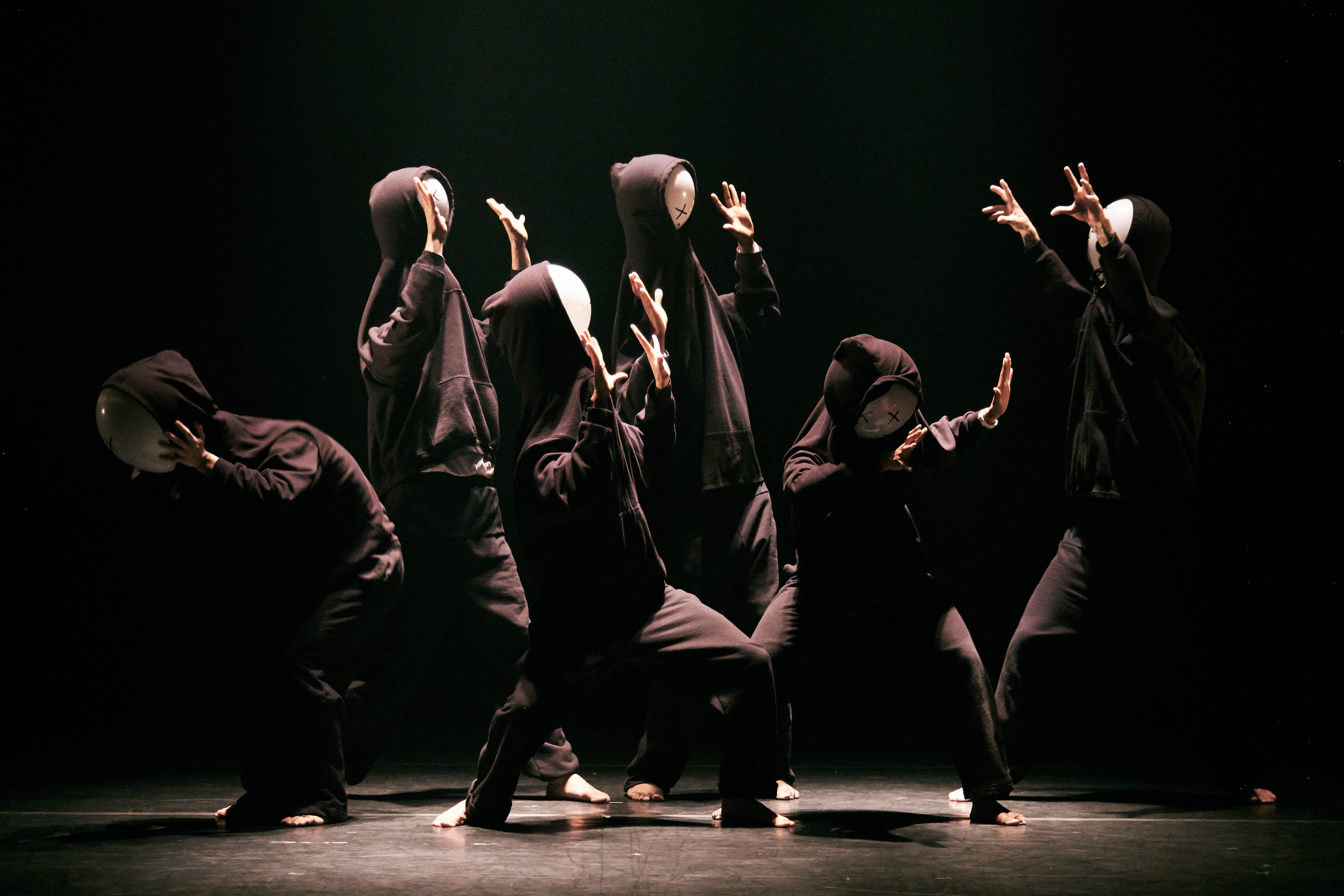
The dancers’ costumes start off as comfy light linens and then transform into black hoods and sweatpants in which we lose the genders of the dancers to extremely dramatic effect. This change of costume miraculously happens in the shadows of the stage. One by one the dancers hide behind a cluster of other dancers, change, and emerge from this said cluster, as if being newly birthed. In another instance, the spotlight is “thrown” between dancers in time to the beats of the music. Towards the end, we get treated to the dancers’ heads in their hoods being replaced by white balloons, all of which creates humour but also drives home some important points about the “ghosts” existing in all of us and the burdens they carry. The choreography accurately conveys the angst surrounding such a heavy topic, which is difficult even for more literal forms of communication like writing or film. This spiritual enquiry makes “Ghost” more than just a dance show and pushes it instead, into the realm of theatre.
If you get to see “Ghost” or the Tentacle Tribe’s any other shows, you will be immersed into a world of visually arresting dancing that is of this moment in time.
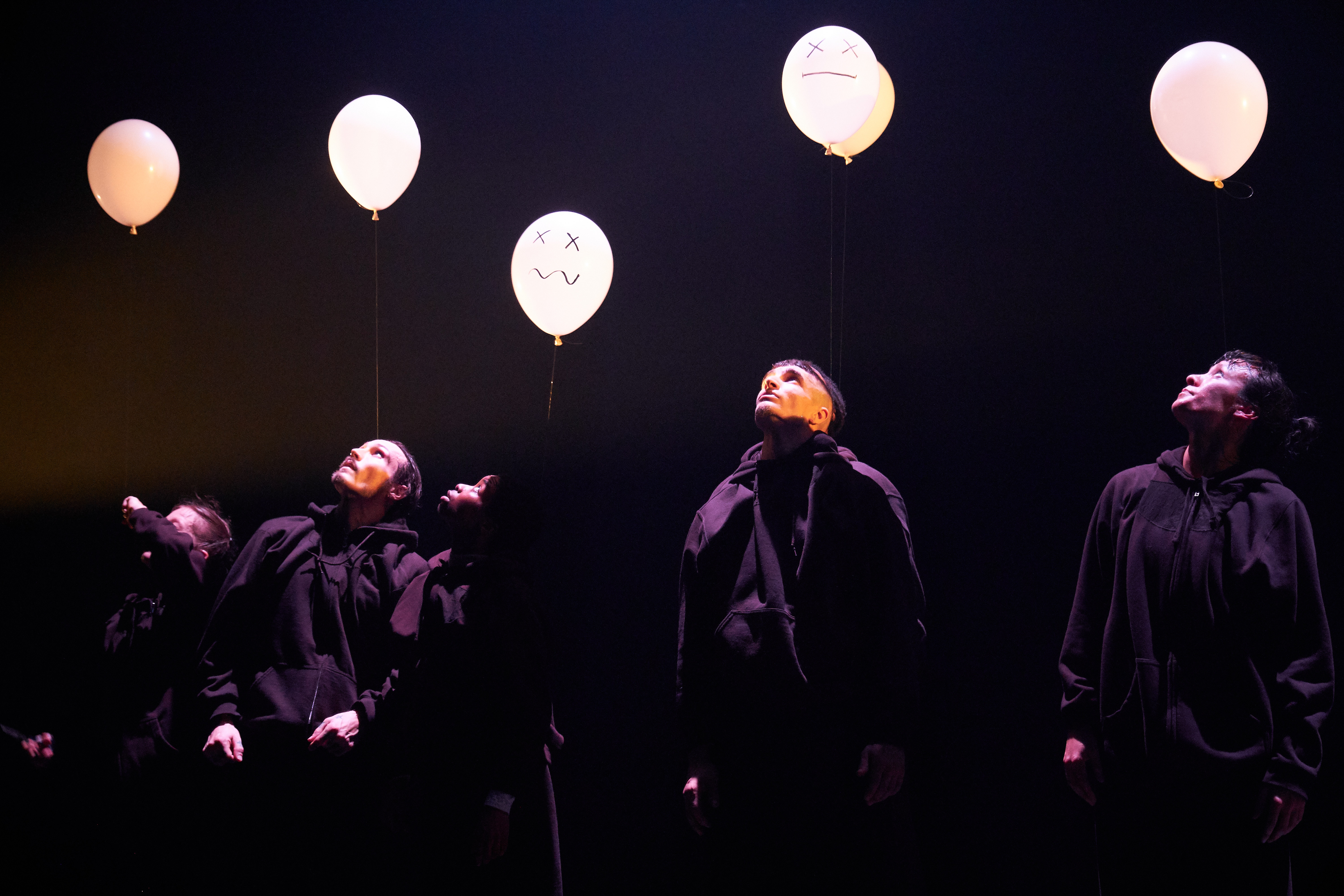
You can read more about Tentacle Tribe here.
– Prachi Kamble
